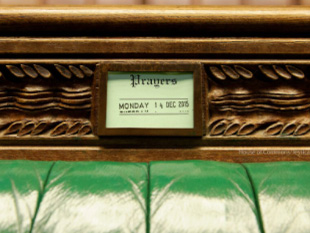250 Humanist Videos on YouTube
You can watch Alice Roberts talking about Morals without Religion.
or Adam Rutherford on How to Argue with a racist.
To get started click here.
You can watch Alice Roberts talking about Morals without Religion.
or Adam Rutherford on How to Argue with a racist.
To get started click here.

To hear Andrew Copson talking with Frank Turner click here.
There are talks with other Humanists that you can access from the same page.
The High Court in Belfast just ruled today that Northern Ireland laws requiring Christian-only Religious Education and compulsory collective worship breach the Human Rights Act and the European Convention on Human Rights.
This is a major victory for Northern Ireland Humanists, which supported the parent who took the case, and builds directly on Humanists UK’s 2015 case which ruled humanism should be taught in RE. But our fight’s not over yet…
We need to take immediate action to see this ruling implemented in law —and to see its effects logically ripple out to the parliaments in England, Scotland, and Wales too.

Did you know that every day the House of Commons is in session, up to 223 MPs can be denied the chance to speak up for their constituents in important debates – just because they do not participate in Christian prayer?
In the Commons, there are only 427 seats for a total of 650 MPs, but those who attend Christian prayers are able to put down a ‘prayer card’ on their seat, which reserves it for the whole day. This means that non-Christian MPs are less likely to get a seat or be selected by the Speaker to take part in the day’s business.
I’m sure you’ll agree that this antiquated and discriminatory practice at the highest level should be scrapped immediately.
With the support of members like you, we are calling for parliamentary prayers to be replaced with inclusive time for reflection.
From Humanists UK website:
In July 2020, in a case brought by six humanist couples, High Court judge Mrs Justice Eady DBE ruled that the failure to provide legally recognised humanist marriages means that ‘the present law gives rise to… discrimination’. She also ruled that, in light of that, the Secretary of State for Justice ‘cannot… simply sit on his hands’ and do nothing. However, she said, given that the Government is currently giving the matter consideration in the form of a review into marriage law by the Law Commission, the Government’s refusal to act immediately can be justified ‘at this time’ and concluded, ‘Although I may deprecate the delay that has occurred since 2015, I cannot ignore the fact that there is currently an on-going review of the law of marriage in this country.’
In response to an email, local MP for the St Ives constituency, Derek Thomas, wrote:
“The Law Commission conducted an initial scoping review of marriage law. It found that the law was badly in need of general reform and that it would not be appropriate to legislate solely for non-religious belief organisations, as this would create further anomalies. The results of the Law Commission’s consultation is finally due to be reported to Government in July of this year.”
So it seems that progress may come, as a result of the Law Commission’s work, when it is published in July 2022.
Some 68% of 18-24 year olds say they belong to no religion,
versus just 18% saying they are Christians.
All state schools are required by law to hold a daily act of collective worship, of a “broadly Christian character.”
26 bishops of the Church of England serve in the House of Lords, but only 12% of the UK population identify as Anglican, down from 15% in 2017.
When will out-dated religious priviledge in the UK be ended?
On March 21st adults will be filling in their census forms.
Cornwall Humanists held a meeting by Zoom last Sunday, on 14th March.
We discussed the leading question about your religion in the census form.
It asks “What is your religion?” – which assumes that you have one.
The unbiased question would ask,
“ Do you have a religion?” and then,
“ If so, which one?”
It was decided to write to local newspapers, to encourage people to answer the question on religion, without being guided to say that they have one, by the way the question is worded.
This matters because census results are one of the elements used to plan policy on health, education and social services.
So, if you are not religious please tick “No religion” on your census form.
Dr Oliver Curry gave the Darwin Day lecture on Friday 12th February.
Dr Curry summarised his findings saying,
“Morality is all about cooperation.”
Cooperation can be thought of in seven areas:
1. Kinship – loving your family.
2. Mutualism – loyalty to your group.
3. Exchange – returning favours.
4. Heroism – being brave.
5. Deference – respecting your superiors.
6. Division – sharing resources fairly.
7. Possession – respecting rights to property.
There is a 2019 ten minute Ted Talk by Dr Curry.
He talks about the Science of Morality.
Access his video here.
Chief Executive Andrew Copson speaks to humanists in the public eye about what they believe, to understand more about their worldview and the values, convictions, and opinions they live by.
The first series ran from early June to early August 2020.
A complete list of the interviews can be found here.
The second series began on 12 November 2020 with Leo Igwe, a Nigerian human rights advocate. He campaigns against superstition and child witchcraft accusations. The above link will take you straight to Leo’s conversation with Andrew Copson.
Adam Rutherford gave the Voltaire Lecture on 24th May 2019.
His lecture was entitled,”How to Argue with a Racist”.
The lecture lasts for about 71 minutes.
With the recent murder of George Floyd in mind, you may wish to find out more.